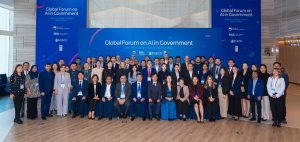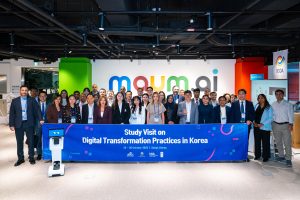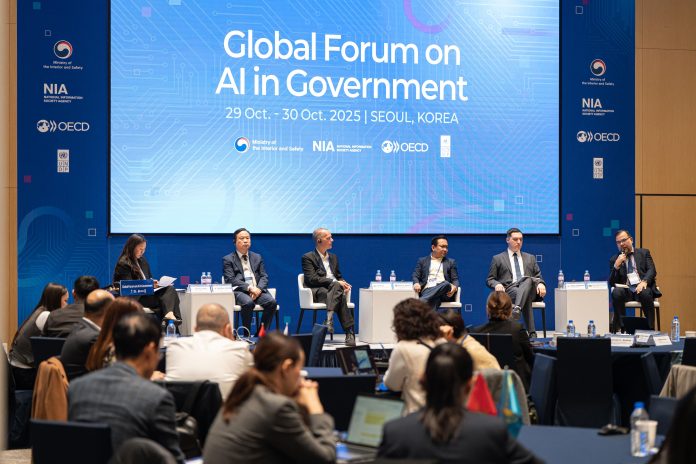By Nazira Bairbek
In a world where lavish lifestyles and material excess often define success, it’s no wonder that so many look to millionaires and billionaires for guidance, adopting their mindsets and following their paths. According to social influence theory, this is a natural reaction—people are drawn to the stories and advice of those who’ve achieved extraordinary wealth.
But here’s the surprising twist that most people don’t realize: many of the world’s self-made billionaires and millionaires are quietly advocating for frugality over flamboyance. Yes, the same financial moguls who are often seen as icons of wealth and extravagance are subtly promoting values that not only lead to personal prosperity but also support the preservation of our planet. This isn’t just a coincidence. The very strategies they use to build lasting wealth are deeply intertwined with the cause of environmental sustainability, showing us that true success doesn’t always need excess.
From Warren Buffett’s humble lifestyle to the wisdom shared in personal finance books like The Millionaire Next Door, The Psychology of Money, and others, a powerful yet hidden message runs through the world of finance: wealth is about restraint, resilience, and long-term thinking—not reckless indulgence. These principles don’t just offer a roadmap to financial security; they also resonate with the urgent need for a more sustainable future—one that pushes back against the environmental harm of overconsumption.
In this article, we’ll dive deeper into how these wealth-building principles not only lead to personal success but also send a subtle, yet profound message about environmentalism. Success, it turns out, doesn’t have to come at the expense of our planet.
The Millionaire Next Door: The Silent Crusaders of Frugality
In The Millionaire Next Door, authors Thomas J. Stanley and William Danko unveil a surprising truth: the wealthiest individuals don’t flash their riches. They aren’t behind the wheels of sports cars or lounging in mansions. Instead, they embrace a lifestyle of quiet frugality, efficiency, and conscious spending. The book’s central thesis upends conventional ideas of wealth, suggesting that it’s not about flashy displays of excess, but about living well below one’s means, making deliberate, thoughtful choices, and avoiding the seductive trap of consumerism.
Through extensive surveys and interviews with affluent individuals, Stanley and Danko reveal a stunning discovery: the richest people are those who spend the least, not the most. Their wealth is built on the steady accumulation of savings, not on fleeting luxuries. And by choosing modest homes, driving older cars, and resisting the pull of extravagant vacations, these “prodigious accumulators of wealth” (PAWs) aren’t just securing their financial futures—they’re modeling a more sustainable way of life.
These conscious choices—living simply and investing wisely—are in perfect harmony with the ethos of environmentalism. By resisting the urge to overconsume, these millionaires and billionaires embody a mindset that could save the planet, one modest choice at a time.
Your Money or Your Life: Every Dollar, a Life Energy
Vicki Robin and Joe Dominguez’s Your Money or Your Life takes this even further, inviting readers to consider an intriguing notion: every dollar we spend represents life energy—the time and effort we trade to earn that money. This powerful reframing of personal finance shifts the focus from accumulation to intentionality. Instead of mindlessly accumulating possessions, Robin and Dominguez ask us to reflect on what we truly value and whether the things we buy align with our deeper purpose.
Through their nine-step program, readers learn to track their spending, not just in dollars but in “life energy.” What are we sacrificing in time, health, and well-being for that new gadget or extravagant vacation? This mindfulness cultivates sustainable living choices—buying second-hand, repairing instead of replacing, and investing in quality goods that last longer. These choices, while reducing personal spending, also cut down on waste, helping to preserve the environment by discouraging mindless consumption.
Ultimately, Your Money or Your Life teaches that the path to wealth is not paved with accumulation but with intentional, value-driven choices. These habits reduce personal carbon footprints, contributing to a more sustainable planet while enhancing financial freedom.
Antifragile: Embracing Simplicity in a World of Complexity
Nassim Nicholas Taleb’s Antifragile introduces an entirely new way of thinking about resilience. Taleb coins the term “antifragility” to describe things that grow stronger in the face of chaos and disorder, like fine wine aging with time. His philosophy, which stretches beyond finance into the realms of nature and society, calls for a return to simplicity—living with less, focusing on long-term investments, and avoiding the fragile traps of excessive consumption.
In Taleb’s view, overconsumption is fragile—it breaks when faced with ecological shocks like climate change or resource depletion. But societies that prioritize simplicity, durability, and longevity thrive in the face of such challenges. Just as resilient systems can withstand stress and grow stronger, antifragile societies—those that focus on enduring values and sustainable practices—become more adaptable and capable of thriving in turbulent times.
Taleb’s principles align perfectly with the ethos of environmental activism: live simply, focus on durable assets, and invest in the long-term health of the planet, rather than succumbing to the fleeting pleasures of disposable goods. This mindset builds both financial and ecological resilience.
The Almanack of Naval Ravikant: Freedom Through Self-Awareness
In The Almanack of Naval Ravikant, Naval Ravikant presents an intriguing philosophy about wealth. For Ravikant, true wealth isn’t about acquiring more—it’s about gaining freedom. The freedom to live life on your own terms, free from the endless pursuit of unnecessary desires. Ravikant’s minimalist approach to wealth encourages readers to step away from the consumerist mindset and focus on the internal wealth of personal growth and self-awareness.
This message not only resonates with the desire for personal happiness but with environmental sustainability. Ravikant’s call to reject overconsumption in favor of living simply and intentionally echoes the broader push for reduced materialism. By avoiding the trap of endless acquisition, individuals can free themselves from both financial and environmental stressors.
The Wealthy Gardener: Wealth Built with Purpose and Intent
In The Wealthy Gardener, John Soforic tells the story of a father passing down lessons of financial discipline to his son. The book’s message is clear: true wealth is born from purposeful decision-making, conscious spending, and a commitment to long-term growth. Soforic stresses that avoiding overconsumption is the key to financial success—and to a life free of unnecessary distractions.
Soforic’s narrative teaches that wealth isn’t about living in excess but about making intentional choices that align with your goals. By resisting the pull of consumerism and investing in assets that appreciate in value, readers can build both financial freedom and a life rich in meaning and purpose. And, much like other finance books, The Wealthy Gardener promotes frugality as the foundation of both personal wealth and environmental sustainability.
The Simple Path to Wealth: Reducing Distractions, Focusing on What Matters
Finally, JL Collins’ The Simple Path to Wealth brings the message of simplicity full circle. Collins advocates for living below your means, investing in low-cost index funds, and avoiding the distractions of materialism. In his world, wealth is not about accumulating possessions but about building the freedom to live life on your own terms.
By reducing unnecessary consumption and focusing on long-term growth, Collins helps readers avoid the pitfalls of consumerism and secure their financial futures. His minimalist approach isn’t just about personal gain—it’s a call to reduce environmental impact by rejecting excess and living with intention.
A Future of Purposeful Wealth and Sustainability
Warren Buffett still lives in the modest home he bought in 1958, despite being one of the wealthiest people in the world, showing that wealth doesn’t have to come with excess. Steve Jobs famously wore the same black turtleneck and jeans every day, prioritizing function over fashion. And Mark Zuckerberg has made headlines for his no-frills lifestyle, choosing to focus on his mission rather than splurging on luxuries. These iconic figures of success have embraced simplicity and purposeful living—values that not only lead to personal prosperity but also inadvertently align with the cause of environmental sustainability.
All their stories align with the hidden messages in the billionaire books mentioned above. By embracing the principles outlined in those books, you’ll not only grow your wealth but also become a more mindful individual. These books encourage you to prioritize long-term planning, conscious consumption, and resilience—values that not only lead to financial freedom but also help create a more sustainable world.
Even though the authors of these influential works may not directly call for environmental advocacy, the hidden messages within their teachings undoubtedly promote a better future for our planet. Their focus on frugality, simplicity, and intentional living aligns with a vision of wealth that isn’t defined by excess but by purpose and mindful choices.
This is the future of wealth: a future where abundance is not about having more, but about living with intention. So, dive into these books, build your wealth with purpose, and take part in a movement that’s bigger than personal success—it’s about saving the planet for future generations. It’s a win-win.















